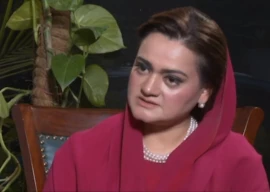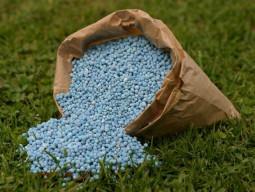
April 27 was to be the first ‘Green Friday’. However, the green bench of the Lahore High Court did not hold any proceedings because the head of the bench, Justice Mansoor Ali Shah, was on leave.
Last week Sohail Nasir, the high court registrar, had declared Friday as Green Day saying that the green bench would hear cases only on Fridays.
According to a notification issued by the LHC registrar on April 5, Justice Shah had been appointed to the green single bench to take up writ petitions concerning environmental matters. Justice Shujaat Ali Khan had been named as the second member of the division bench to hear appeals. The chief justice (CJ) had directed that senior most judges on high court benches in Multan, Bahawalpur and Rawalpindi would hold the court as single green bench while the two senior most available judges would hold court as division bench. In a second notification, all courts of the senior civil judges at district headquarters and sub-division levels were also declared as Green Courts by the LHC CJ.
Officials of the Water and Sanitation Authority and the Environment Protection Agency had been summoned yesterday (Friday) in the first case to be taken up by the bench.
The petition, against disposal of wastewater into river Ravi, was filed by the Pakistan Environmental Law Association and the Lahore Conservation Society through their counsel, Ahmad Rafay Alam.
The bench had directed the petitioner, on April 12, to suggest names of experts so it could constitute a committee to assess the gravity of the matter and suggest solutions.
Petitioners’ counsel Ahmad Rafay Alam had submitted that the Ravi was the most polluted river in Pakistan. In 2002, he said, sewage was discharged into the river at a rate of 12.74 cubic metres per second; by 2017, keeping population growth and industrial activity in mind, it had been estimated that this would increase to a discharge rate of 35 cubic metres per second.
He said toxic metals from the waste had started appearing in the food supply, particularly in areas where water for irrigation was becoming scarce and people were using drain water for irrigation.
He said that polluted water degraded the environment and caused waterborne diseases.
Alam asked the court to recognise that access to clean water was a fundamental right. He asked the court to direct the Punjab government and WASA to provide sewage treatment plants that will clean the wastewater being discharged into the river.
He also asked that the Environmental Protection Agency be directed to carry out its responsibilities under the Pakistan Environmental Protection Act and take strict action against persons or industries discharging effluent into sewers and drains. He also asked for the setting up of a commission to investigate the matter.
Published in The Express Tribune, April 28th, 2012.










1732012115-0/Untitled-design-(14)1732012115-0-270x192.webp)






COMMENTS
Comments are moderated and generally will be posted if they are on-topic and not abusive.
For more information, please see our Comments FAQ